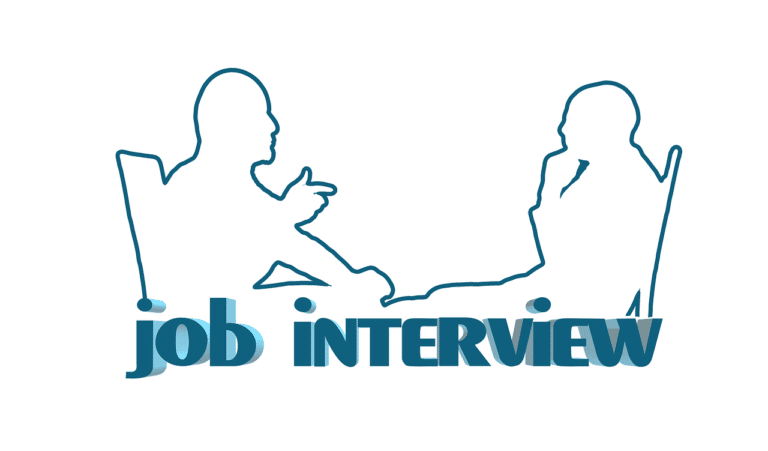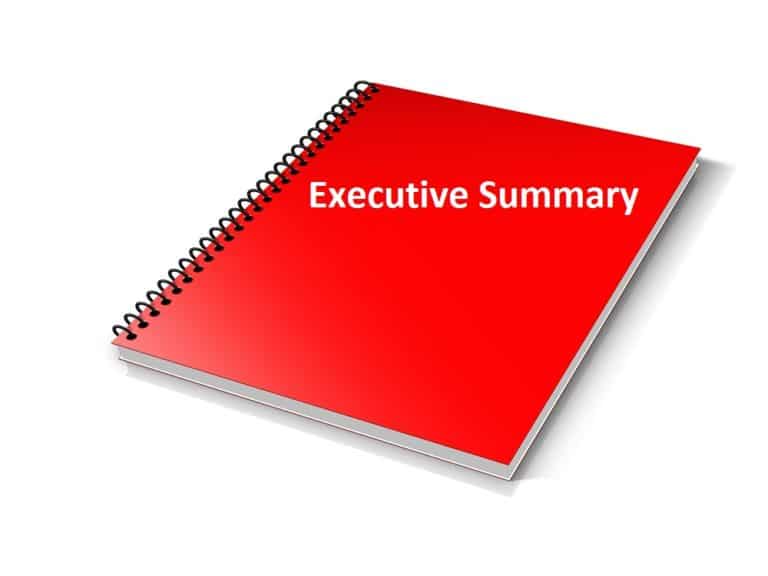First the bad news: There is no guarantee that your (hopefully) future employer is a good interviewer. The good news: He or she may still be a good employer.
Sometimes employers plan to ask strange interview questions to get a feel for how you will solve problems and/or how poised you can be under pressure. In this situation what you answer may not matter as much as how you think it through or communicate.
Other employers, like Apple, have a list of strange interview questions they ask job candidates to assess specific attributes. Interviewers may be looking for your product or company knowledge, creativity level, or reasoning ability.
Of course, there are plenty of just plain bad job interviewers. The interviewer may lack training or finesse, or just think they are being sneaky, smart or straightforward. The questions may even be illegal (this may only matter if you aren’t offered a job because of your answer and you sue them for it).
Idle chit-chat with a stranger in the elevator or waiting room could be pre-interview evaluation. Small talk with the interviewer on the way into the meeting room (or when leaving) could also provide fodder for evaluation.
Remember your interview starts the minute you step onto the employer’s property. The bottom line is that you want the job; so plan to put your best foot forward. Practice answering as many interview questions at you can. If possible, enlist the help of someone else to ask you the questions.
DON’T BE TAKEN BY SURPRISE IN AN INTERVIEW
Preparing for an interview is a major key to success. Practice answering standard interview questions. You always want to research the company you are interviewing with as thoroughly as possible. Likewise you should go out of your way to stay current with your industry’s latest news and information. Also, keep sharp with brain teasers, riddles, and the like.
If you have issues or obstacles that may negatively impact your assessment during an interview then prepare your answers to tough questions in advance and practice, practice, practice. If you need to buy some time while developing an answer, you can always say, “Hmmmm, I can honestly say I have never been asked that in an interview.” If you have developed a rapport or can pull it off successfully, ask, “Do you mind if I ask the reason for the question?”
FREE TRAINING: How a flat-broke newbie built an online EMPIRE
Some of the strangest interview questions I have come across and suggested answers and approaches to each are sorted into three broad categories: Pretty is as pretty does (or says); Irrelevant, Irreverent, or Illegal; and Liar, Liar, Pants on Fire.
PRETTY IS AS PRETTY DOES (OR SAYS)
Behavior based interview questions are designed to determine how you have or will react under pressure, your thought process, and how quickly you can come to a solution. It is difficult to prepare for this type of interview. Think about some of the more challenging situations that you have faced and how successfully you handled these. Be prepared with and practice sharing as many examples of your successes as possible.
Employers also dip into off-the-wall questions that they have used in the past and feel will expose your best (or worst) qualities during the interview rather than after hire. These types of questions are also difficult to prepare for. It is important to remember that your thought process and how you arrive at and communicate your answer may be more important than the answer you actually give.
Open ended questions are often used to allow the opportunity for you to provide as much information as possible without the employer asking for it. “Tell me about yourself” is the most common open ended question asked. Answer all questions from a professional and not personal perspective. Always push your agenda: Your skills and abilities match what the employer is looking for.
1. “If you were shrunk to the size of a pencil and put in a blender, how would you get out?”
Surprisingly, Goldman Sachs actually does ask this question during interviews. There is no right or wrong answer per se. You may want think about the issues involved, resources needed, steps required to achieve the goal of getting out of the blender when you are a size of a pencil.
Get creative and even add some humor to allow the interviewer to see another side of you than your resume communicates. For example, “I would call a meeting of the other pencils in the blender and ask for input from my team. Then, I would develop a plan of action with time frames and delegate assignments to affect my escape.”
2. Tell me about a time when you didn’t agree with a decision your boss made.
What happened and how did you deal with it? You may or may not have had to deal with such a situation. If you have, be sure to answer with action words and clearly state what you did. If you haven’t, draw from vicarious experiences and state what you would do.
Tread lightly answering this question – you never want to bad mouth your prior companies or bosses! If you were asked to fire someone that you felt should not be fired, you might say, “My boss asked me to fire a receptionist that was quite possibly the best we had in a series of very bad receptionists. I communicated my opinion to my supervisor, who didn’t agree. I fired the receptionist.”
3. Write a one page essay about a light bulb.
This was actually the first question I was asked in my first interview for a “real” job after undergraduate school. It was for a vocational counselor position with a small rehabilitation company working with injured workers.
Initially, I was stumped. I had previously interviewed for some very low level positions and been hired without challenge, so nothing prepared me for this type of question. I just started writing and ended up writing essentially about the energy it took to do a good job at work and how important that was. I got the job.
The employer (we are still friends) was trying to determine a few things with this request: 1) Writing skills 2) Focus and commitment 3) Personality/approach to life. Again, it is vital to push your agenda with every possible answer.
4. Do you have any questions for us?
Don’t miss out on this opportunity to get your interviewer talking and/or to request a tour or to shadow someone doing the job you are interviewing for. People love to talk about themselves and their companies. An interview is also an opportunity for you to assess whether or not the position is a match for you.
Ask questions such as:
- What brought you to work here? OR What do you like best about working here?
- Where do you see the company in 10 years?
- What would be my biggest challenges in the first few months in this position?
- Why is the position available?
- What advice do you have for someone like myself who really wants to be hired for this job?
5. Of what are you least proud?
This question is a toughie, to use a technical term! If you think about this in terms of addressing your weaknesses it will go a bit smoother.
Answer this question by rephrasing it and presenting a “good” weakness such as you work too hard and have trouble leaving work at the office or you are too detail oriented and make your coworkers crazy.
6. What would your ex- say about you?
This question may reference your mother, your nemesis, your previous supervisor, or any other character. This question can take you by surprise if you don’t understand that the employer is attempting to get at a deeper level of information about you.
Use the answer to this question to highlight your selling points or add any skills or abilities that you haven’t been able to share yet. Because “someone else” is answering the question you have the opportunity to toot your own horn more than you normally would.
7. What would you undo if you could?
Do over! Wouldn’t we all love that? This question provides you with the opportunity to share an insight or something you have learned that indicates professional growth. You should have already thought of a number of career-related anecdotes to illustrate your abilities. Make sure to be prepared to discuss something you would have done differently in a past situation, given what you now know.
8. When can you start?
This will likely be the best strangest question asked in your last interview! I am always taken aback when I ask this during practice interviews and clients don’t know what to say or blurt out, “Today.” If you are really eager for the job you may be tempted to answer tomorrow or as soon as possible.
I recommend that you don’t answer today, tomorrow or as soon as possible. Give yourself time to get a proper offer (position, supervisor, pay, benefits, contract requirements, etc.) and evaluate it. The soonest you should be able to start would be the following Monday or in a week, even if you are currently unemployed. Two weeks is conventional. This will give you some breathing room and time to prepare for a successful first day of work!
9. How do you spend your free time?
This may seem like a strange interview question, but the employer is probably trying to determine how well rounded you are. He or she is not making small talk that is for sure.
Answer this question keeping in mind to project a positive image. If possible, relate any hobbies or recreational activities to skills the employer might find valuable. For example, “I teach children life management skills – it is very gratifying to see their sense of self-confidence grow when they learn basic management principles.”
RRELEVANT, IRREVERENT, OR ILLEGAL
So many candidates forget to pay attention to their hallway behavior, or the behavior pre- and post-interview from the parking lot in and back out onto the street. You should be aware of not only your presentation and behavior, but what you communicate as well.
Employers may feel strongly about issues that are not necessarily legal or even relevant to ask in an interview. You may be caught off guard if you don’t think in advance about how to handle this type of query. Arrive with an agenda (the skills and abilities that match what the employer is looking for) and communicate that agenda at every possible opportunity.
10. How old are you?
Most Human Resource (HR) personnel would not ask this question, but a supervisor who is asked to interview you might. It may even come up in an informal, pre- or post – interview “chat.”
Some employers still discriminate against applicants who are too old or too young. Determine and address the interviewer’s concern without highlighting you didn’t answer than the actual question. Answer casually. For example: “Old enough to pride myself on my work ethic and to know when to ask questions of the right people.”
11. How much do you want this job?
Depending on who is asking whom, this question could give you the creeps! This is an example of what is most likely just a poorly framed question. The employer may be trying to determine your level of enthusiasm for the job – do you feel you are a good match?
Answer the intended question, “Tell me why you are the candidate we should hire for this position.” Clearly communicate your interest to the employer by saying, “So far this opportunity sounds perfect for me. Can you tell me more about ___________.”
12. What religion are you?
Again, HR might not ask such a question, but another interviewer might, especially if he or she is very religious. A Bible or other religious items displayed in the office might allow the employer a false sense of comfort with the inappropriate question.
It is important to remind you that a question is illegal if you are not hired because of your answer. The flip side is that if you share a strong religiosity in common and you feel comfortable answering the question- it could help you. If you don’t want to answer the question simply indicate that you are very anxious to get started with the interview and/or hear more about the position and the company.
13. What is your Facebook password?
This is a strange question, but employers do actually ask this! Social media and what you share on them have definitely been in the spotlight for hiring managers.
If this question comes up, state that it is your policy, for personal security, to never share any passwords. Reassure the interviewer that you are aware of the impact of social media on your professional life and the company’s business.
14. Are you married?
This question is also often asked during an informal chat period rather than as a formal interview question. Some employers view married candidates as more stable, others lean toward hiring unmarried people as they feel they will be available to work more hours.
If you feel your marital status may work against you, answer carefully. Use the stock answer, “Hmmmm, I can honestly say I have never been asked that in an interview.” OR “What are employers thinking about marriage in the work place these days?” Be sure you can carry it off without coming across as flippant.
15. Would you consider relocating?
Employers that have difficulty staffing undesirable locations may employ a kind of “bait and switch.” A job advertisement may indicate the job is in an ideal location (and the actual interview may take place there), but the job site is at an undesirable location. At some point during the interview this question may be asked as a bridge to disclose this fact to the candidate.
Answer this question by underlining your interest in the job and asking for more information. For example, “This position sounds like a great opportunity; can you tell me more about your potential needs in other areas?” If you have no interest in relocating you may want to seriously consider whether this position is a match for you.
16. Do you take any medication?
This may be a poor attempt to gauge any medical concerns or need for health insurance. An employer cannot discriminate against you due to a disability or health condition if you can do the job.
Answer this question carefully. You will want to stress that you can do the job without sharing private information that you don’t want to provide. Try to deflect this question by saying something like, “My health is under control.”
17. Do you like my ___________?
This can be a loaded question about anything off the wall. Interviewers are human and may interject their own agendas or needs into the interview. Even if it doesn’t make sense!
When in doubt clarify or ask the interviewer to restate the question. If it is irrelevant, this will give the interviewer a chance to regroup and save face. Either the question will be re-framed or a more relevant question asked.
LIAR, LIAR PANTS ON FIRE – NEVER LIE IN AN INTERVIEW!
It is imperative that you are always honest in an interview setting. Not only can even small fibs trip you up during the interview or in subsequent interviews, but it may be grounds for termination after hire. If your past is not perfect you may be tempted to shade the truth to enhance your chances of getting a job. This never works.
Make sure that your career and potential employer choices are realistic considering any blemishes in your background. If your choices are realistic, but blemishes in your background might prove challenging then develop answers to address those areas in a way that seems positive. Honesty in general is important to many employers, regardless of the industry or your circumstances.
18. Have you ever lied?
This very open ended question and one that is, ironically, designed to assess your honesty. Everyone has lied. If you say you haven’t – you are probably lying!
Answer this question by stressing your understanding of the importance of honesty. Relate your answer to the industry or the employer as much as possible. Illustrate with an example if you have a scenario in which being honest was difficult for you.
19. Have you ever taken any illegal drugs?
If you are not prepared for this question you could blanch or blush whether or not you have ever done so! It is always important to not lie in an interview.
If you can’t answer, “No.” to this question then carefully craft an answer in your own words that makes it clear you do not use or condone use of illegal drugs. Something like, “I do not use illegal drugs, no.” As always…practice, practice, practice.
20. Have you ever stolen anything?
Depending upon your industry this may very well be a legitimate question, but typically wouldn’t be asked this way in an interview. Ideally, you will be able to answer, “No.”
If you have an issue that may impact how the employer will perceive you then practice an answer that will make it clear that you know it is wrong to steal and would not think of doing so. For example, “At my last employer, stealing was a major issue. I didn’t steal from them and would not, of course, steal from anyone.”
21. Did you ever quit a job?
An employer asking this question is likely trying to determine honesty and how quickly you think on your feet. Unless you have only had one job you have had to quit one or more, of course!
Answer this question by stressing that you “regret ending any good relationship, but you have had to give notice to benefit your career.” This type of response shows your sense of loyalty and that you have goals.
The questions don’t seem so strange, once you know the answers! Good luck on your interview.












